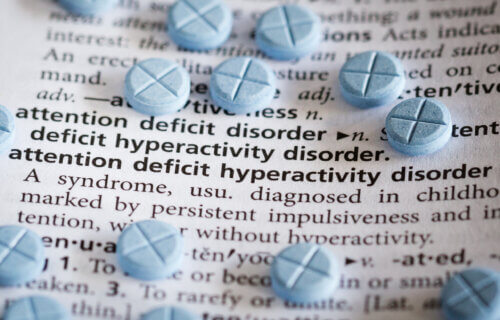WASHINGTON — For those who take stimulant medications like Adderall or Ritalin for ADHD, a new study has found a potential downside to be aware of — an increased risk of developing a weakened heart muscle condition called cardiomyopathy over time. Before you panic, however, the overall risk still remains relatively low, scientists say.
The study authors, scheduled to be presented at the American College of Cardiology’s Annual Scientific Session, looked at data on over 12,700 young adults between 20 and 40 years-old diagnosed with Attention-Deficit/Hyperactivity Disorder. Researchers compared those prescribed stimulant ADHD medications to similar individuals who didn’t take the meds. They found that patients on stimulants were 17 percent more likely to develop cardiomyopathy after one year and that heightened risk climbed to 57 percent after eight years, compared to the non-medicated group.
Cardiomyopathy is a disease that causes the heart muscle to weaken and have a harder time pumping blood effectively. Symptoms include fatigue, shortness of breath, and an inability to exercise or be as active as normal. Over time, the condition can worsen and potentially lead to heart failure.
💡What To Know About ADHD:
- ADHD is a neurodevelopmental disorder characterized by persistent patterns of inattention, hyperactivity, and impulsivity, which can affect daily functioning and development.
- Symptoms of ADHD can vary widely among individuals but often include difficulties with focus, organization, time management, and maintaining attention, as well as excessive physical movement and impulsive actions.
- Treatment for ADHD typically involves a combination of behavioral therapies, educational support, and medication management to help individuals manage symptoms and improve their quality of life.
- According to the CDC, roughly 6 million U.S. children have ADHD.
Here’s the key, researchers say: while that increased risk percentage sounds alarming, the overall prevalence of cardiomyopathy was still very low in both groups over the 10-year study period. After a decade on stimulants, only 0.72 percent of patients developed cardiomyopathy, versus 0.53 percent of those not taking the meds.
“You can have almost 2,000 patients on these medications for a year and you might only cause one of them to have a cardiomyopathy that they otherwise would not have had, but if you leave them on it for 10 years, 1 in 500 will have that happen,” says lead author Pauline Gerard, a second-year medical student at the University of Colorado School of Medicine, in a media release.
So, in plain numbers, the risk is quite small, even over an extended period. Gerard stresses that the findings shouldn’t necessarily change how doctors prescribe stimulants or screen patients beforehand.
“I don’t think this is a reason to stop prescribing these medications. There’s very little increased risk of these medications over the long term; it’s a real risk, but it’s small,” the researcher adds.

Stimulants work by increasing levels of brain chemicals like dopamine and norepinephrine, helping patients focus and control impulsive behaviors that come with ADHD. However, they also increase blood pressure by making the heart pump faster and harder.
Previous shorter-term studies didn’t find any heart risks from taking stimulants for a year or two. Since many ADHD patients start taking these medications as children and may stay on them for decades, however, this new study looked at potential long-term effects.
The researchers used a medical database covering about 80 hospitals to identify patients with an ADHD diagnosis between ages 20 and 40, with and without stimulant prescriptions. They excluded people with pre-existing heart conditions unrelated to ADHD meds. Each stimulant user was then matched to a non-user with similar demographics and health profiles.
So what do the findings mean for the millions of Americans, including many kids and teens, currently taking stimulants? Experts say there’s no need to panic or immediately stop the medication if it’s providing significant benefits for ADHD symptoms.
“The longer you leave patients on these medications, the more likely they are to develop cardiomyopathy, but the risk of that is very low,” Gerard reiterates.
However, it does underscore the importance of closely monitoring any patient on a long-term stimulant regimen. Getting regular checkups, watching for potential cardiac symptoms like fatigue or shortness of breath, and keeping an eye on blood pressure readings is advisable.
For most ADHD patients, stimulants are life-changing in helping them better focus, control impulses, and manage tasks and responsibilities at home, school, or work. However, this study provides another data point on the medication’s potential effects beyond the brain. The researchers suggest further studies could help identify if certain patient subgroups may be at higher risk and could benefit from more aggressive screenings before starting stimulants. They also hope to look at whether different stimulant medication formulations carry varying levels of cardiomyopathy risk over time.

How does this relate to a 77 year old overweight person who has taken adderall for decades like DJT
Good one Craig. Way to try and diminish an article that I was quite interested in. Your displayed lack of impulse controls suggests that perhaps your meds have worn off for the evening…